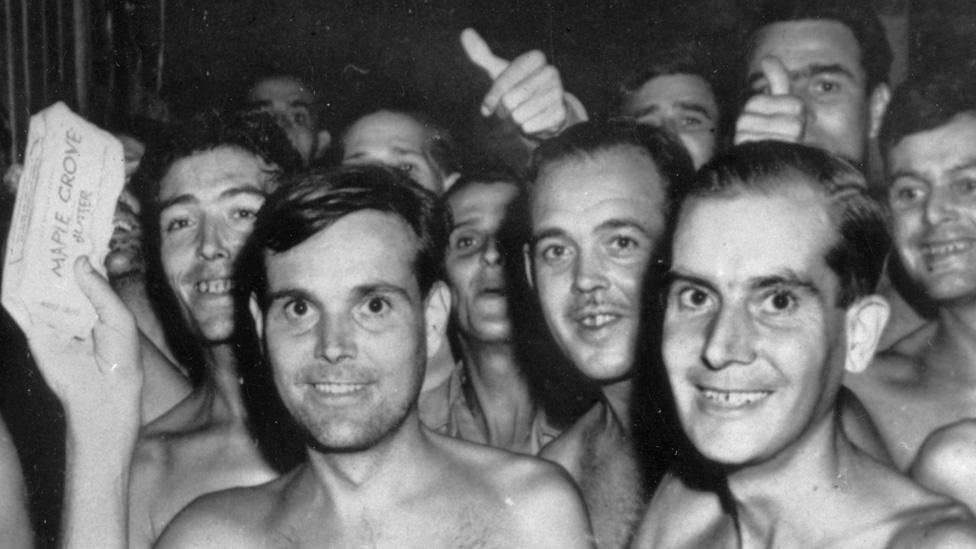WW2: Funeral held in Mildenhall for 'last' Burma Railway soldier
- Published
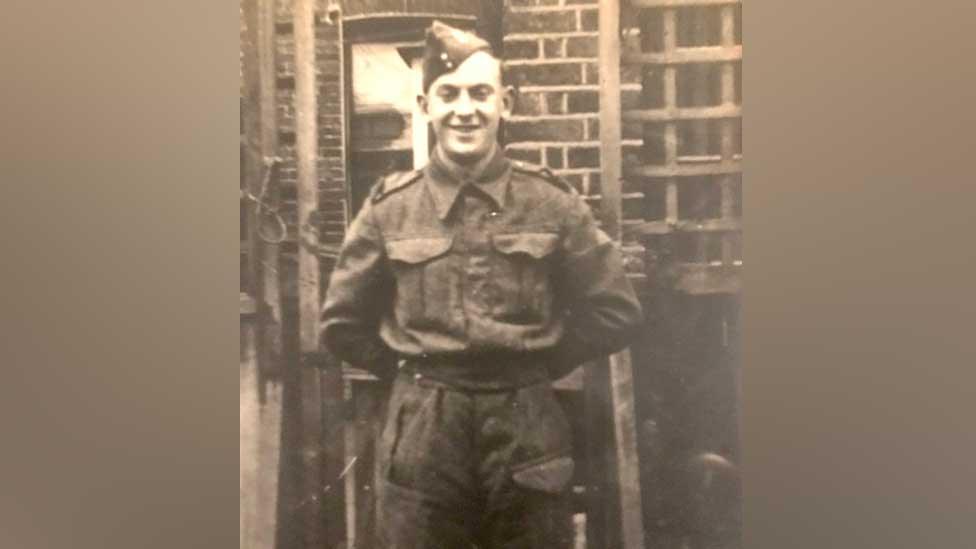
Horace "Lyle" Hutley was conscripted in 1940 and survived the evacuation of Dunkirk as well as three years as a Japanese prisoner of war
The funeral will be held later for a man believed to be the last British prisoner of war (POW) forced to work on the notorious Burma Railway.
Horace Hutley, of Mildenhall, Suffolk, died aged 104 on 17 May.
He was one of thousands of Allied troops captured by the Japanese at Singapore during World War Two.
When he returned to the UK weighing six stone (38kg), he sat in a corner unable to speak, his niece Doris Ripper said.
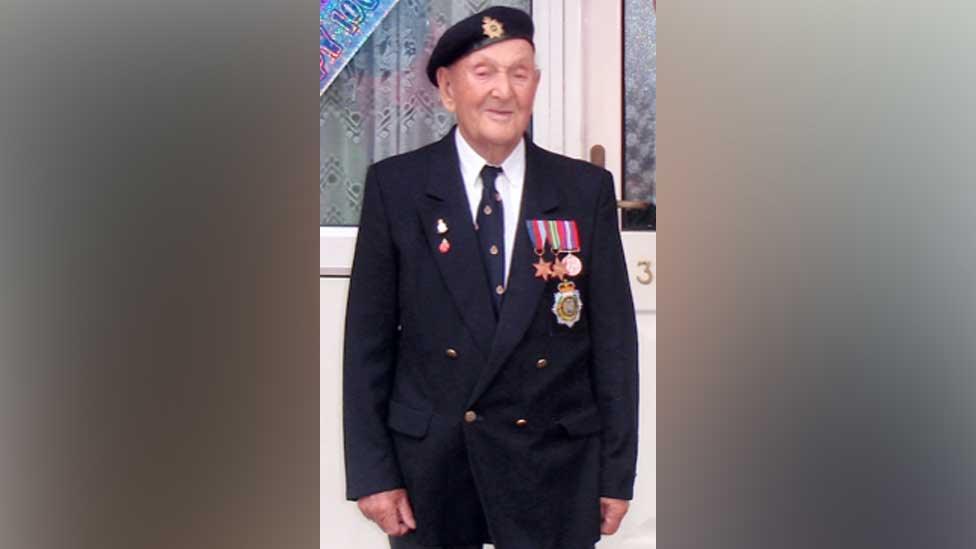
He was passionate about gardening and helped his road win a "best street" competition
Born in Bermondsey, south-east London, he left school at 14 and was conscripted in 1940.
The Royal Army Service Corps gunner survived being strafed by German aircraft during the Dunkirk evacuation later that year, before being posted to Africa.
The ship he was on was diverted to Singapore, where Mr Hutley was captured and imprisoned in Changi Prison on 5 February 1942.
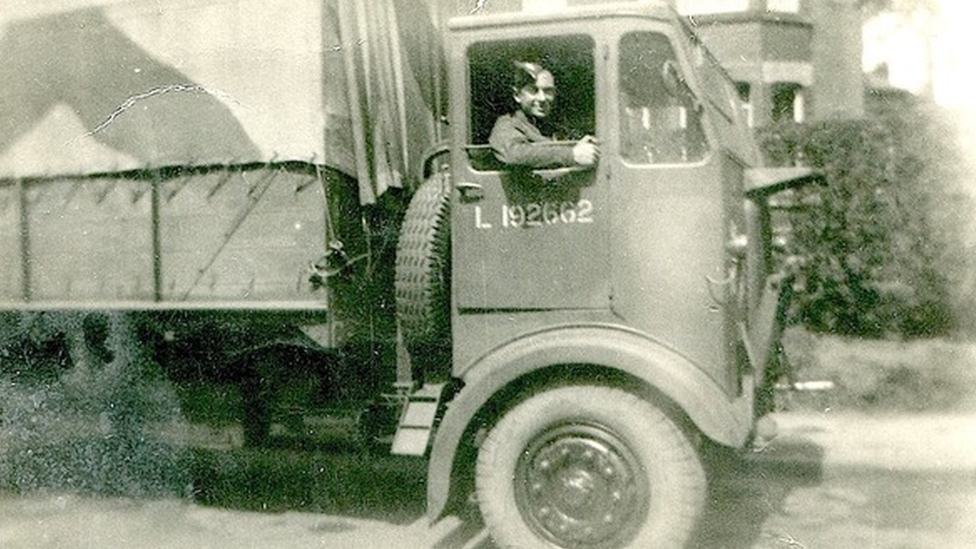
He worked as a delivery driver before he was conscripted into the Royal Army Service Corps
"For the next three years in the Burmese jungle he was made to work on the Death Railway suffering torture, a starvation diet, having all his teeth fall out, made to work in all weathers, unmerciful beatings, malnutrition, leg ulcers and burying numerous pals along the way," said Mrs Ripper's husband Bill.
Years later, Mr Hutley revisited Changi Prison with Mr and Mrs Ripper.
While there, he broke down as he told them how the postcard he had written to his wife Ivy telling her of his capture was torn up by a Japanese soldier.
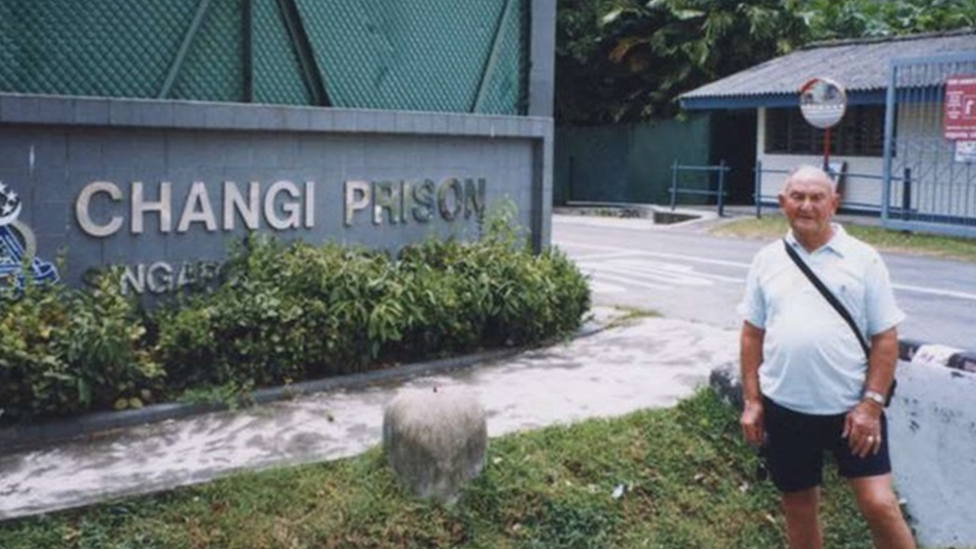
He revisited Changi Prison while in his 80s and spoke to some visiting schoolchildren about his experiences
The couple had married the year before.
Mr Ripper said: "The most distressing thing for him was Ivy didn't know if he was alive or dead, and they didn't hear from each other for four years."
But he said he POWs found ways of "getting back at" their captors - such as burying white ants' nests at the bottom of the River Kwai bridge pylons so the insects would eat their way through the wood.
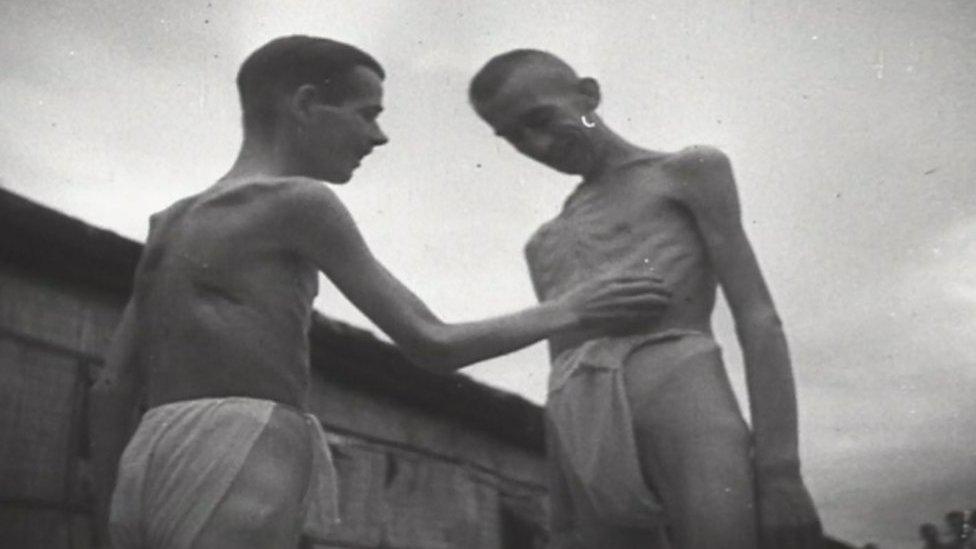
The Japanese military starved and beat the Allied prisoners of war and civilian workers they forced to work on the railway

The Burma Railway
It was a Japanese project to connect Bangkok in Thailand to Burma
About 60,000 Allied POWs and tens of thousands of civilian workers were forced to provide the labour
This led to the deaths of more than 12,000 POWs and about 90,000 civilian workers
Most of it was dismantled after the war

The project inspired Pierre Boulle's 1952 novel The Bridge Over the River Kwai, which was made into an Oscar-winning film.
Mr Hutley told his family his experiences were far worse than those depicted in the film.
Mrs Ripper said: "Lyle was a different person when he returned.
"My dad said he would sit in a corner and never say a word - you wouldn't believe that when you saw him in later life as he was so lively and busy."
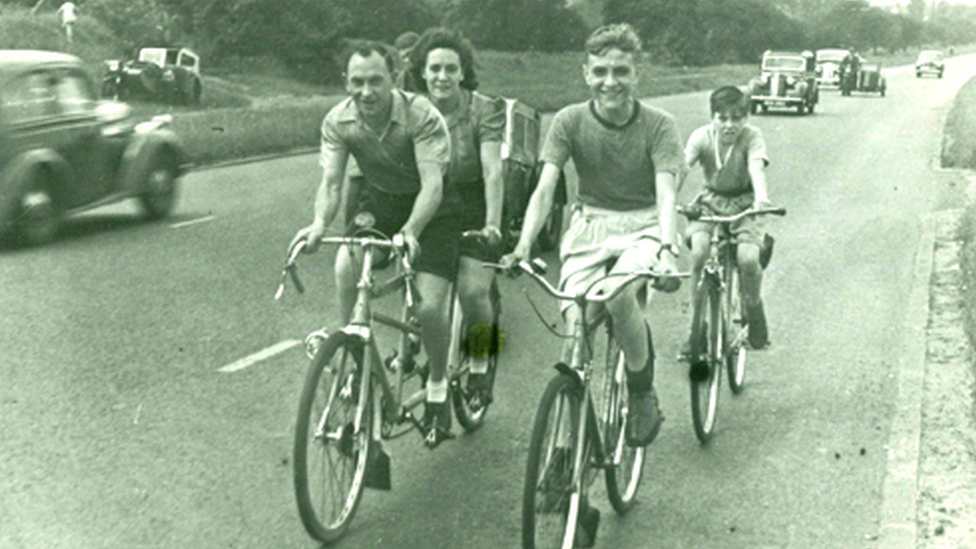
Mr Hutley and his wife Ivy would regularly take their nephews and nieces with them for days out and holidays. Their first vehicle was a tandem
After his wife nursed him back to health, they moved to Mildenhall so he could take up a job at fireproof shutter manufacturer Dreadnought,
Mrs Ripper said: "They didn't have any children but if ever they went for a day out, they'd take their nephews and nieces.
"He was a big part of my life."
Mr Ripper said his uncle was never bitter about his wartime experiences, despite suffering life-long nightmares about the constant beatings.
Mr Hutley's funeral will be held at St Mary's Church in Mildenhall at 13:30 BST.
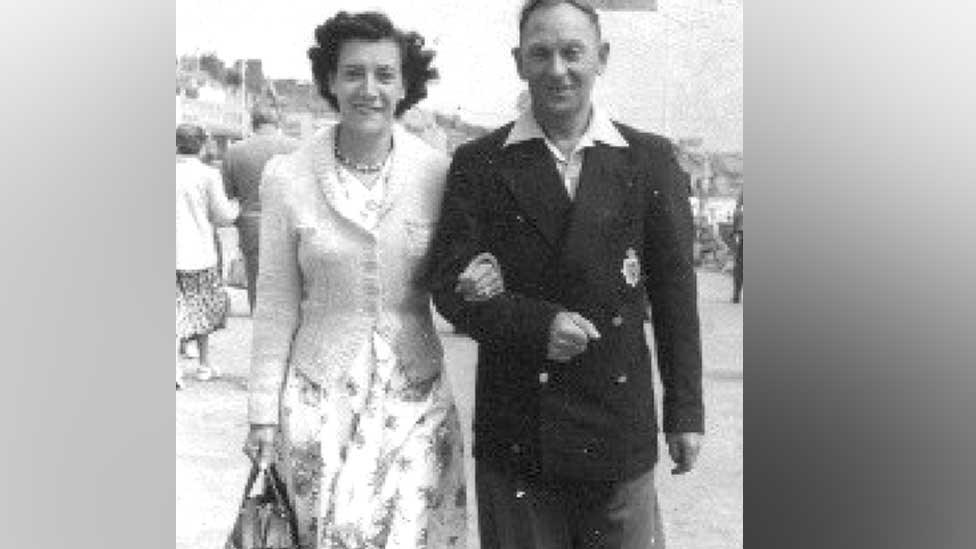
The couple had only just got married when Mr Hutley was posted abroad

Find BBC News: East of England on Facebook, external, Instagram, external and Twitter, external. If you have a story suggestion email eastofenglandnews@bbc.co.uk, external
Related topics
- Published15 August 2020
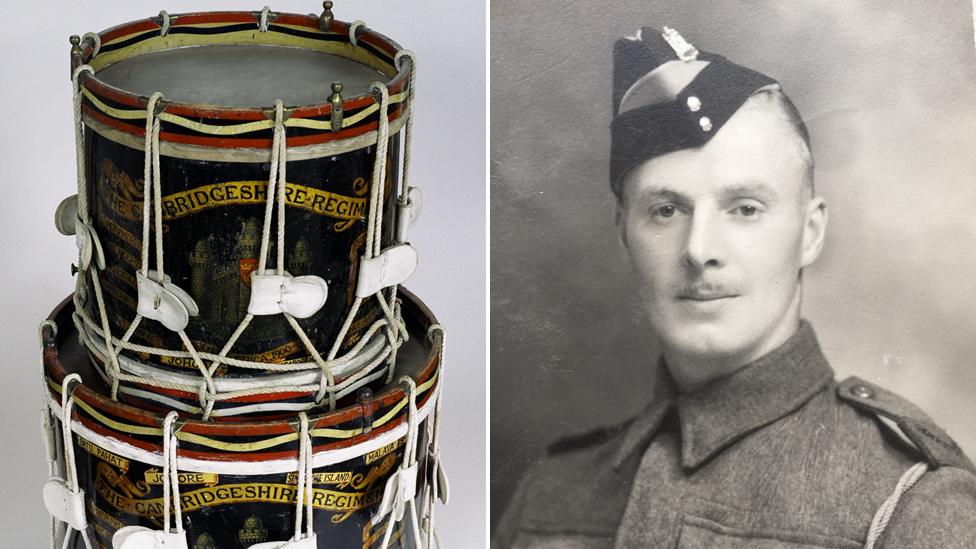
- Published13 August 2020
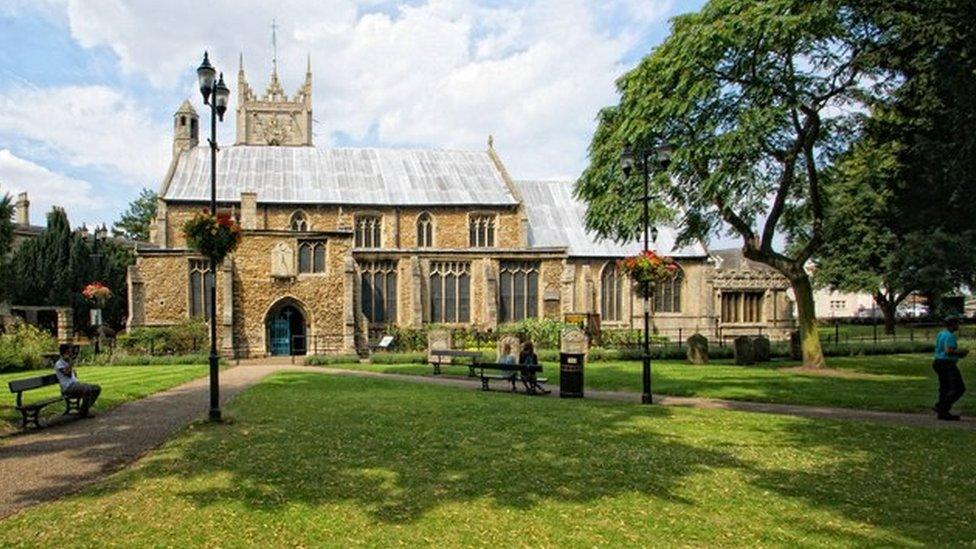
- Published24 November 2019
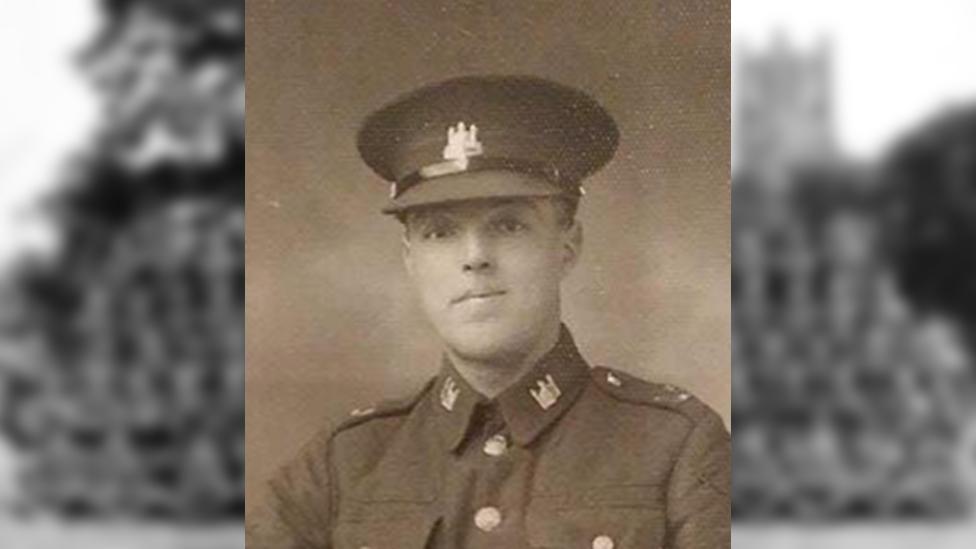
- Published15 August 2015
